 |
The consortium in
charge of implementing NEWTON-g is highly complementary and gathers
world top experts on the key aspects of geophysical monitoring:
instrumentation, field measurements, data analysis and modelling.
The consortium brings together the multidisciplinary skills needed
to fulfill the objectives of NEWTON-g and involves 6 partners, from
6 different European Countries. In particular, the project
partnership includes: |
|
▶ 3 government-funded leading research institutes
▶ 2 top universities
▶ 1 successful and growing SME |
| The partners of NEWTON-g are: |
Istituto Nazionale di Geofisica e Vulcanologia
 |
Project Coordinator
| INGV - Italy |
INGV is the largest Italian research institution in Earth Sciences, with headquarters in Rome
and basis in cities all over Italy.
Its mission is the monitoring and study of geophysical phenomena in both solid and fluid components of the Earth. INGV runs monitoring networks,
laboratories and observatories and collects, studies and disseminates data in the field of seismology, volcanology, geodesy, geochemistry and marine
sciences. It is the reference scientific institution for the Italian government in the field of geo-hazards and operates in coordination with civil
protection authorities.
Mt. Etna monitoring system, managed by the INGV-OE,
includes 165 geophysical, geochemical, and volcanological sattions. This
permanent multiparameter network is mainly aimed at rapidly evaluating
changes in the state of activity of Etna. Data from Etna's monitoring system will be
made available to NEWTON-g scientists and will be used to validate the data
produced by the new gravity imager.
www.ingv.it |
www.ct.ingv.it
Team members:
▪ Dr Daniele Carbone
▪ Dr Filippo Greco
▪ Dr Letizia Spampinato
▪ Dr Flavio Cannavò
▪ Mr Alfio Messina
MUQUANS
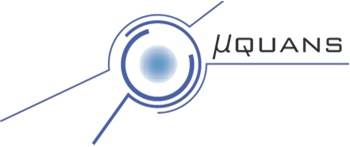 |
|
MUQUANS - France |
Muquans is a dynamic French SME, which is the first company in the world to design,
produce, and commercialize quantum sensors based on cold-atoms. Muquans is a spin-off from the
Institut d'Optique (France) and
Observatoire de Paris
(LNE-SYRTE, France), where the core technology of its products has been developed for more than 15 years. Especially active in the fields of Geophysics
and Time/Frequency, Muquans supports several ambitious research activities. The company has developed a unique scientific and technological expertise in
high-precision quantum measurements. Muquans's team of scientists, engineers and technicians gathers deep skills over a wide range of competencies:
quantum physics, lasers & optics, electronics & micro-wave, opto-mechanics, real-time software.
In the framework of NEWTON-g, Muquans will carry the great R&D effort required to develop and provide a quantum absolute gravimeter able to operate autonomously
on a volcano. A unit of such a new gravimeter will be delivered for the consortium. Muquans will also provide to the consortium its expertise in Metrology,
instrumentation, and data processing.
www.muquans.com
Team members:
▪ Dr Laura Antoni-Micollier
▪ Dr Jean Lautier-Gaud
University of Glasgow
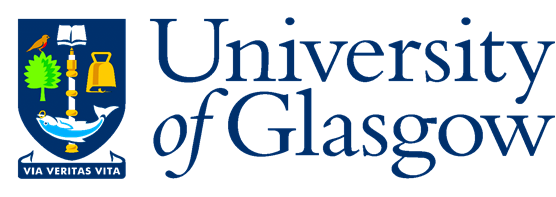 |
|
UNIGLA-IGR - United Kingdom |
The University of Glasgow has a long-established reputation as a major research-led institution
and has an ongoing focus on research excellence. The School of Physics and Astronomy is currently in the top five of Russell Group UK Physics Departments in terms of
research income per academic FTE.
The Institute for Gravitational Research (IGR) focuses on the area of gravitational wave detection and has unique expertise in the
areas of the design, modelling and fabrication of precision mechanical suspensions, the development of ultra-low mechanical loss mirror coatings with low absorption, and
the development of novel optical interferometric techniques, aimed at monitoring test masses at, and beyond, the Standard Quantum Limit. Recently, the expertise of the
IGR has been applied to the development of a miniaturized gravity sensor, using Microelectromechanial Systems (MEMS). The significance of this work has been recognised
via a high-profile
publication in Nature, as well as being named one of the top ten breakthroughs in global physics of 2016 by the Institute of Physics. This expertise
makes the ideal background for reaching the objectives of NEWTON-g.
www.gla.ac.uk |
www.physics.gla.ac.uk/igr
Team members:
▪ Prof Giles Hammond
▪ Dr Richard P. Middlemiss
▪ Prof Douglas J. Paul
Koninklijk Nederlands Meteorologisch Instituut
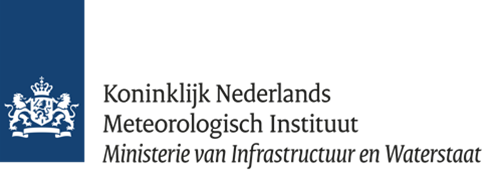 |
|
KNMI - The Netherlands |
The Royal Netherlands Meteorological Institute (KNMI) is the Dutch national weather service,
responsible for monitoring of weather, climate and air quality as well as weather forecasting. KNMI is also in charge of the monitoring of geophysical sub-surface processes, such
as seismic activity. As an agency of the Ministry of Infrastructure and the Environment, KNMI is charged with the task of guaranteeing both the gathering of information about the
atmospheric and geophysical processes and the translation of that information to possible risks for the community.
The department R&D Seismology and Acoustics (RDSA) is responsible for the observation of both tectonic and induced seismic events in the Netherlands, and the attribution of their causes.
To this end, data are acquired (monitoring using an extensive national seismic and acoustic network), interpreted (analysis and research) and distributed (data dissemination).
The department has a strong position in the international acquisition and distribution of seismic data (ORFEUS Data Center, EIDA-node). RDSA also monitors the volcanic activity in Saba
and St. Eustatius and runs an earthquake monitoring and tsunami warning system for Bonaire, St. Eustatius and Saba. These expertises will provide NEWTON-g with strong support towards the
achievement of the project objectives.
www.knmi.nl |
www.knmi.nl/research/seismology-acoustics |
www.knmidc.org/seismology
Team members:
▪ Dr Elske de Zeeuw - van Dalfsen
Helmholtz-Zentrum Potsdam, Deutsches GeoForschungsZentrum
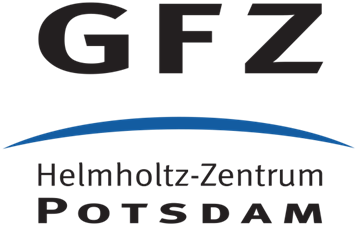 |
|
GFZ - Germany |
GFZ is Germany's premier institute for geosciences, with strong links to leading institutes
across Europe. Research in the 37 sections of GFZ ranges from the dynamics of Earth's deep interior to the remote observation of its active surface. The core competence of GFZ
is the sciences of the solid Earth, encompassing the fields of geodesy, geophysics, geology, mineralogy, geochemistry, geochronology, geomorphology, physics, mathematics, biology
and engineering. GFZ has a strong tradition in the monitoring of our planet with terrain and remote sensing techniques. In recent years, it has significantly contributed to
the analysis of seismicity and subsurface processes linked to human activities for the exploration and exploitation of natural resources. GFZ supports large scale and
supra-national geoscientific projects and unique active experiments (e.g., the global seismological network, GEOFON, and the International Continental Scientific Drilling
Program) by means of large-scale monitoring and sounding infrastructures, including satellite missions, seismological and GPS networks, magnetic or gravimetric observatories.
www.gfz-potsdam.de
Team members:
▪ Dr Eleonora Rivalta
▪ Dr Mehdi Nikkhoo
Université de Genève
|
 |
|
UNIGE - Switzerland |
The University of Geneva has a long history and expertise in the field of risk reduction and prevention.
In particular, the Department of Earth Sciences has been running a special training for the management of natural risks (CERGC). The Geological Risk and Physical Volcanology
group, led by Prof. Costanza Bonadonna, is part of the Section of Earth and Environmental Sciences (Faculty of Sciences). This Group has developed important codes for the
probabilistic assessment of volcanic hazard and the characterization of eruption source parameters. This Group has also been largely involved in important EC projects
(e.g., ENSURE) whose outcome will be available to the implementation of NEWTON-g.
In the framework of NEWTON-g, UNIGE will perform a comprehensive study aimed at understanding how the data produced by the new "gravity imager" could be best incorporated into
early warning systems, hazard reporting and crisis management plans.
www.unige.ch | www.unige.ch/sciences/terre
Team members:
▪ Dr Costanza Bonadonna
|
|
| |
|
|
|
 info@newton-g.eu info@newton-g.eu |
NEWTON-g has
received funding from
the EC’s Horizon 2020 programme,
under the FETOPEN-2016/2017 call
(Grant Agreement No 801221) |
|
 |
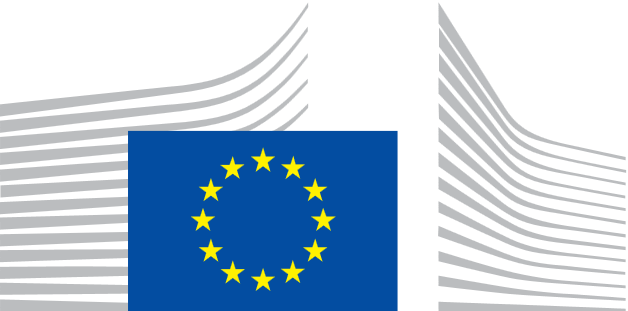 |
|
|
All intellectual property rights are owned by the NEWTON-g consortium |
|
|
|
|
